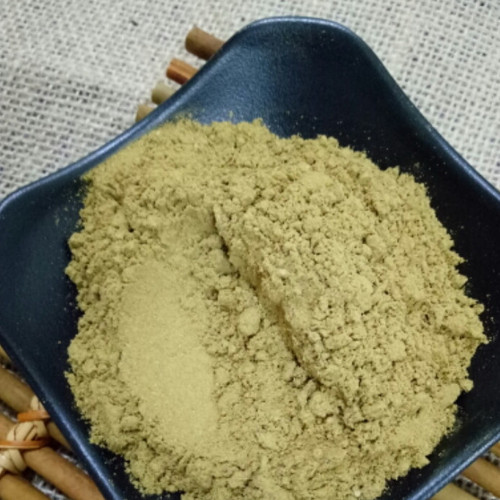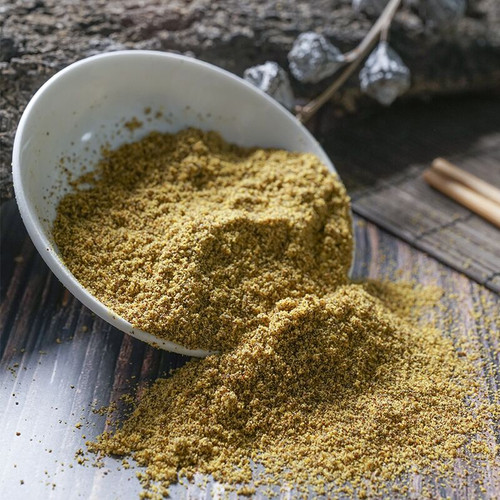Product Overview
Parts used: Dried ripe seeds
TCM category: Warm herbs that transform Phlegm and stop Cough
TCM nature: Warm
TCM taste(s): Pungent
Meridian affinity: Lung
Scientific name: Brassica juncea
Other names: Chinese mustard, Indian mustard, Leaf mustard, Oriental mustard or Vegetable mustard
Use of brown mustard seeds (Huang Jie Zi) in TCM
Please note that you should never self-prescribe TCM ingredients. A TCM ingredient is almost never eaten on its own but as part of a formula containing several ingredients that act together. Please consult a professional TCM practitionner, they will be best able to guide you.
Preparation: Collect ripe seeds and dry them.
Dosage: 3-9 grams
Main actions according to TCM*: Moistens the Lungs and removes phlegm. Reduces swelling and eases pain. Warms body core and expels coldness.
Primary conditions or symptoms for which brown mustard seeds may be prescribed by TCM doctors*: Vomiting Abdominal pain Chest pain Coughing Phlegm Muscle cramps
Key TCM concepts behind brown mustard seeds (Huang Jie Zi)'s properties
In Traditional Chinese Medicine (TCM), brown mustard seeds are plants that belong to the 'Warm herbs that transform Phlegm and stop Cough' category. In TCM Phlegm is a condition of Stagnation of Fluids which tends to start in the Spleen and then goes to the Lungs. If this overly accumulates it thickens and becomes pathological Phlegm. Phlegm, being a form of Stagnation, often starts as being Cool and transforms to Hot as the condition progresses. The herbs in this category are Warm in nature so they treat the early stages of the Stagnation: Cold-Phlegm and Wet-Phlegm with symptoms of wheezing, vomiting and nausea.
As suggested by its category brown mustard seeds are plants that are Warm in nature. This means that brown mustard seeds tend to help people who have too much "cold" in their body, although with less effect than a plant that would be Hot in nature. Balance between Yin and Yang is a key health concept in TCM. Those who have too much cold in their body are said to either have a Yin excess (because Yin is Cold in nature) or a Yang deficiency (Yang is Hot in Nature). Depending on your condition brown mustard seeds can help restore a harmonious balance between Yin and Yang.
Brown mustard seeds also taste Pungent. The so-called "five elements" theory in Chinese Medicine states that the taste of TCM ingredients is a key determinant of their action in the body. Pungent ingredients like brown mustard seeds tend to promote the circulations of Qi and body fluids. That's why for instance someone tends to sweat a lot when they eat spicy/pungent food.
The tastes of ingredients in TCM also determine what organs and meridians they target. As such brown mustard seeds are thought to target the Lung. In addition to performing respiration, the Lungs are thought in TCM to be a key part of the production chain for Qi and the body fluids that nourish the body.
Use of brown mustard seeds (Huang Jie Zi) as food
Brown mustard seeds are also eaten as food. It is used as an ingredient in dishes such as Pickled Mustard Seeds.








